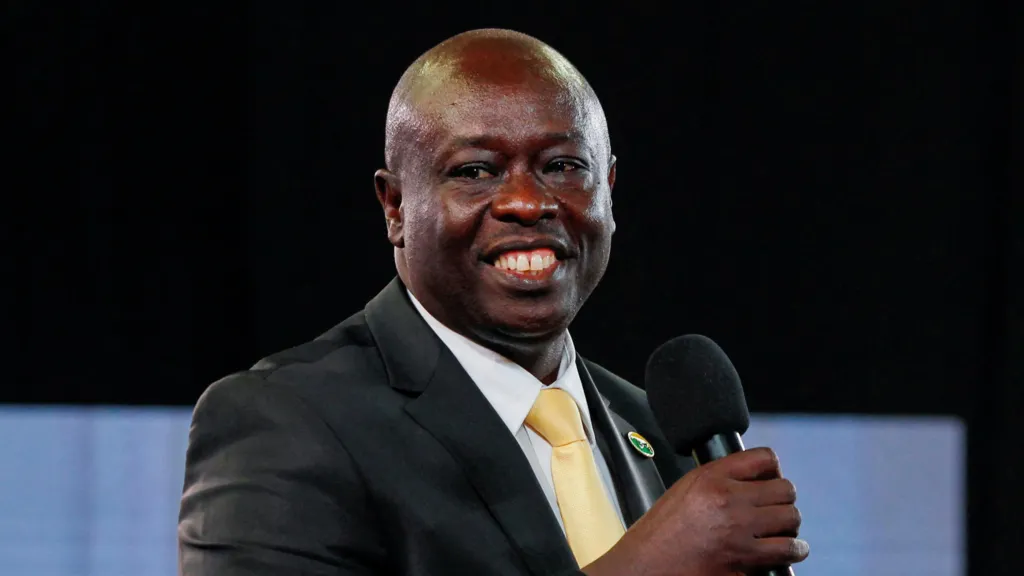Kenyan Deputy President Rigathi Gachagua Hospitalized Amid Impeachment Proceedings
3 min read
Kenyan Deputy President Rigathi Gachagua is currently hospitalized, causing him to miss his impeachment trial in the Senate. His lawyer, Paul Muite, confirmed that Gachagua has been admitted due to severe illness, specifically intense chest pains. This unexpected health crisis comes as the Senate prepares to vote on whether to remove him from office later this week.
Initially present in the Senate earlier that day, Gachagua was scheduled to appear at 2:30 PM local time (11:30 AM GMT) to defend himself against multiple charges. Muite expressed concern over his client’s condition, stating, “The sad reality is that the deputy president has been taken sick, very sick, and is in hospital.” Gachagua, commonly referred to as “Riggy G,” is receiving treatment at The Karen Hospital.
Despite the circumstances, the Senate has rejected a request to postpone the proceedings by two days. Senate Speaker Amason Kingi clarified that the trial cannot be legally extended beyond Saturday, leading to a continuation of the proceedings without Gachagua’s defense. Before exiting the hearing, Muite informed the Senate that his legal team could not proceed without their client’s instructions, saying, “We humbly and with a lot of respect take your leave, Mr. Speaker, and the leave of this honourable house.”
The Deputy President faces 11 charges, including corruption, inciting ethnic divisions, and undermining the government. To oust Gachagua, a two-thirds majority of the 67 senators is required. As the trial commenced on Wednesday, Gachagua pleaded not guilty to the charges, describing the impeachment process as a “political witch hunt.”
His impeachment gained traction following a vote in the National Assembly, where an overwhelming majority of MPs approved the motion. Tensions have risen between Gachagua and President William Ruto, just two years after they were elected together. The conflict escalated in June when Gachagua publicly criticized the head of the intelligence agency for failing to inform Ruto adequately about mass protests against unpopular tax hikes, a move perceived as undermining the president’s authority.
In response to the ongoing turmoil, Ruto had to withdraw the contested taxes and reshuffle his cabinet, including appointing opposition figures. So far, he has refrained from commenting on Gachagua’s impeachment.
The trial has seen key testimonies, including that of Mwengi Mutuse, the lawmaker who initiated the impeachment motion. He accused Gachagua of constitutional violations and characterized his actions as extraordinary wrongdoing deserving of impeachment. During his testimony, Mutuse highlighted Gachagua’s controversial comments comparing the government to a shareholding company, implying that only those who supported the administration would benefit from government services.
However, under cross-examination, Mutuse struggled to defend his claims. A video of President Ruto addressing residents of Murang’a, calling them “major shareholders” of the government, was played, raising questions about Gachagua’s role in the comments.
In his defense, Gachagua’s legal team pointed out that accusations of corrupt wealth acquisition—estimated at 5.2 billion Kenyan shillings ($40 million)—were based on properties from his late brother’s estate. One of Gachagua’s lawyers labeled the charges against him as “false, ridiculous, or embarrassing.”
As the trial progressed, Andrew Mulwa, a former chief executive of the Kenya Medical Supplies Agency, testified against Gachagua, claiming he had been pressured by the Deputy President to return documents related to a canceled tender for mosquito nets. Mulwa insisted this was a first in his 15 years of public service, describing the call as highly unusual.
The final witness, Abdi Mohamud from the Ethics and Anti-Corruption Commission, addressed allegations regarding conflicts of interest and gifts received by Gachagua, including cows from the public.
The trial was initially set to allow Gachagua to defend himself fully, but his absence raises uncertainty about the proceedings. Following the conclusion of testimonies, senators will debate the impeachment motion before voting.
Gachagua, a wealthy businessman from the influential Mount Kenya region, quickly ascended from being a first-time MP to the Deputy President after Ruto selected him as his running mate in the August 2022 election. His impeachment trial has captured public attention and dominated media discussions, with many speculating that it could pass if the opposition aligns with the ruling coalition as they did in the National Assembly.
Should the impeachment go through, Gachagua is expected to contest the decision. Meanwhile, Kenyan media have started discussing potential successors, including Murang’a County Governor Irungu Kang’ata, Kirinyaga County Governor Anne Waiguru, Interior Minister Kithure Kindiki, and Foreign Affairs Minister Musalia Mudavadi.







